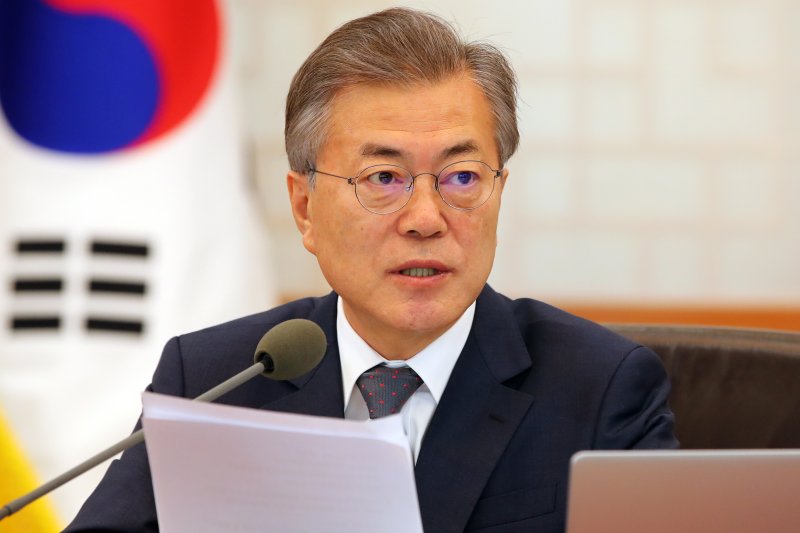South Korean President Moon Jae-in's office has pursued engagement with North Korea without significant input from Seoul's National Assembly. Photo by Yonhap/EPA-EFE
April 4 (UPI) -- The flurry of diplomatic activity on the Korean Peninsula is adding to the more than 200 agreements between Seoul and Pyongyang, as the president's office is being charged with silencing its critics.
South Korean records show only 13 agreements have been ratified by South Korean parliament since June 2000.
The relatively low number of agreements that have been endorsed in Seoul's National Assembly is being reported as the administration of President Moon Jae-in is pursuing plans to submit the agreement on the 2018 Inter-Korea Summit for parliamentary approval, Yonhap reported Wednesday.
The agreements signed between the two governments, 245 in total since 2000, mostly pertain to politics and the economy.
There have so far been 69 political, 12 military, 109 economic, 33 humanitarian and 22 society and culture-related agreements, South Korea's unification ministry said.
Of the 245 agreements signed between North and South, 157 agreements are "in effect," an indicator past and present engagement has been driven mainly by South Korea's executive branch.
Agreements entailing significant financial burdens on Seoul must receive legislative approval, while agreements that only involve technical and procedural matters can be enforced with the president's signature.
The National Assembly has not ratified any economic cooperation proposals since 2005, however.
Seoul's agreement on the 2018 Inter-Korea Summit between Moon and Kim Jong Un includes a clause that states the summit will proceed regardless of a change in government, but the agreement must also receive parliamentary approval.
The speed at which détente has taken root has been followed by some backlash, following a report from a local newspaper the president's office has been silencing critics.
The JoongAng Ilbo reported Wednesday the Moon administration has been pressuring researchers and policy experts as leaders of North and South plan to meet.
The newspaper stated experts including defector Ahn Chan-il, president of the World Institute for North Korea Studies, who fled the regime in 1979, was banned from making television appearances for a month, and high-profile defector Thae Yong-ho had been asked to cut back on his activities.
The presidential Blue House denied the claims in the report Wednesday and said it will seek legal measures to correct the "unacceptable" claims of a government "blacklist."















